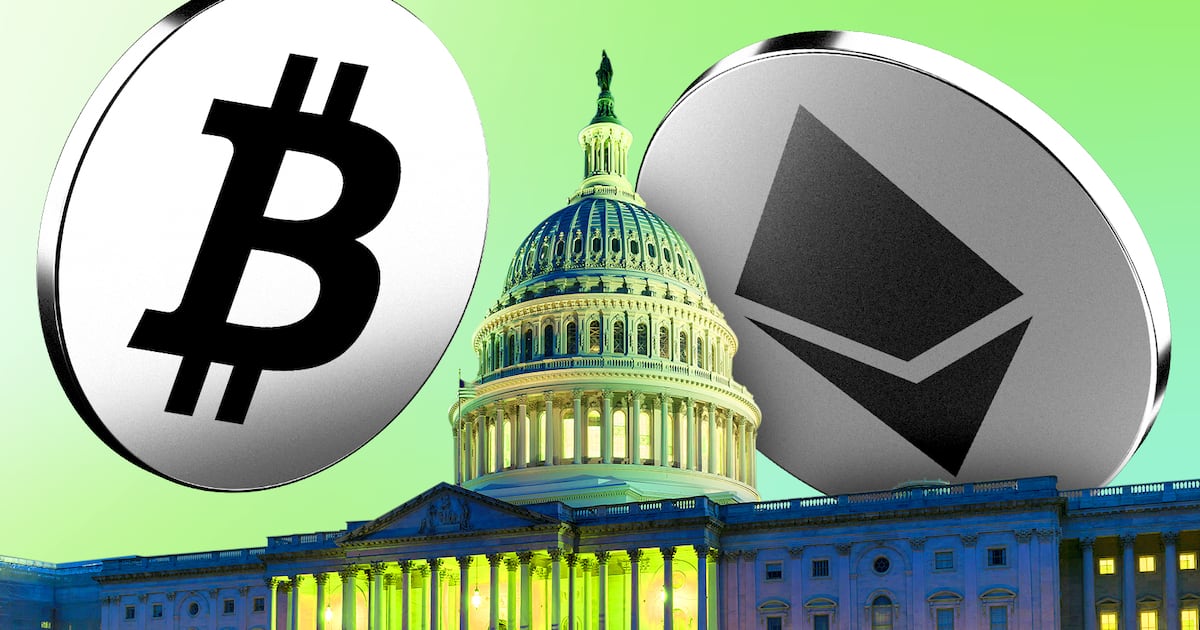Washington, July 14 — While Bitcoin powered past a new all-time high, a pivotal week is rapidly shaping up for the cryptocurrency industry, poised to mark its formal integration into the US financial system through significant legislative action.
Crypto Milestone: New Bills Signal Major Legislative Shift
The narrative surrounding cryptocurrency gaining mainstream acceptance is a familiar trope. However, crypto investors may well look back on this week as the defining moment when Bitcoin and its myriad progeny began firmly establishing themselves within the established financial order.
Driven partly by newfound price validation at the highest levels, a coordinated legislative push in Washington is expected to propel the industry into a new regulatory phase. This week, the US House of Representatives is set to consider three landmark bills.
Three Landmark Bills
The Stablecoin Accountability and Regulatory Enhancements Act (Genius Act), which already cleared the Senate, targets stablecoin issuers and managers, aiming to regulate this crucial segment of the crypto economy. Complementing this, the Crypto Clarity and Legitimacy Act (Clarity Act) seeks to establish clear regulatory jurisdictions for various crypto assets and define specific oversight rules based on their levels of decentralization. A third measure, the Anti-Central Bank Digital Currency Surveillance State Act, directs prohibition against the Federal Reserve developing a central bank digital currency (CBDC) intended for individual use.
Despite Democratic objections, framing the legislation as “corrupt” and linked to the Trump family’s crypto ventures (which have generated roughly $620 million), bipartisan backing appears to underpin the bills’ anticipated passage in the House.
A pathway differs slightly for the bills post-House consideration: The Clarity Act and the Anti-CBDC Surveillance State Act will proceed to the Senate for review, while the stablecoin legislation has been endorsed by the White House and could reach President Joe Biden’s desk for signature.
Statutory Clarity and Ongoing Questions
Adding another layer to an already transformative week, substantive legal questions regarding the scope of crypto privacy and the enforceability of smart contracts come to a head. Commencing this Monday, Roman Storm, a key developer at the privacy-focused platform Tornado Cash, faces trial in New York, potentially setting important precedents.
The immediate consequence is that the crypto landscape stands to benefit from increased statutory clarity concerning the rules defined for stablecoins and the delineation of regulatory responsibility across agencies overseeing assets ranging from Bitcoin to niche digital tokens.
Furthermore, the outcome of the Storm trial alongside the legislative wave could substantially mute the ongoing debate surrounding a US CBDC, at least until further legislative or regulatory contours emerge.
Ahead of the Curve
A critical caveat, however, remains. The mere existence of these laws does not automatically dissolve the persistent layer of regulatory uncertainty that has long plagued the industry.
The bills legally establish the foundational requirements and areas of regulatory focus, but the journey is far from over. Regulatory agencies—such as the SEC, the CFTC, and the Federal Reserve—now face the task of drafting implementing and enforceable regulations. This process inherently involves interpretation: defining what specific activities fall under the purview of these statutes and creating rules applicable across diverse facets of the dynamic crypto sector. This interpretive stage risks spawning enforcement challenges and potential litigation even after the legal framework is established.
Nevertheless, the progress represented by the anticipated legislation carries significant weight. It emboldens institutions, including traditionally cautious players like banks and asset management firms (and possibly public pension funds), adding credibility to the market. Their hesitations buffered by clear statutory ground rules create openings for broader institutional participation. With fintech platforms also actively expanding into cryptocurrency, the convergence suggests that the long-touted dream of mainstream adoption might indeed be accelerating sooner than previously expected.
This article originally appeared in The Guidance newsletter on July 14. Sign up here.












